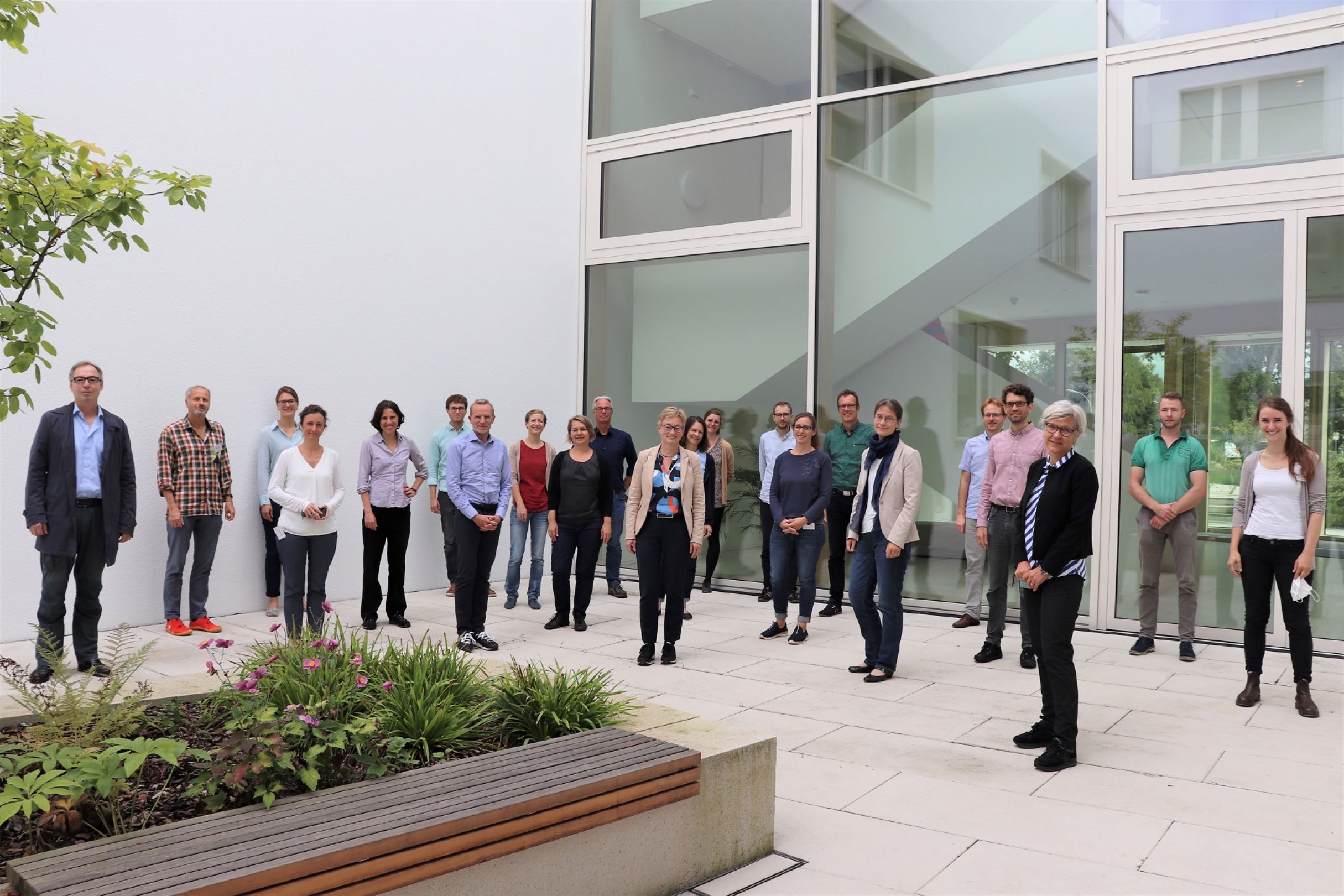German Advisory Council on Global Change visits Fraunhofer IWKS

Solutions for global sustainability. This is the overarching goal of the German Advisory Council on Global Change (WBGU), which met in Alzenau on September 16-17, 2021. The meeting was hosted by Prof. Dr. Anke Weidenkaff, director of the Fraunhofer Research Institution for Materials Recycling and Resource Strategies IWKS, based in Alzenau and Hanau. Prof. Weidenkaff was appointed in November 2020 to the council, which consists of a total of nine members and provides independent advice to the German government on sustainability issues.
"I am proud to welcome such a high-profile board to our premises at Fraunhofer IWKS. How we will live sustainably in the future is the central challenge of our research. The WBGU brings together experts from various disciplines to develop holistic assessments and recommendations for action for the German Federal Government as an actor in international sustainability policy. The global approach is an important point here, because climate protection must not end at national borders," says Prof. Weidenkaff.
The German Advisory Council on Global Change (WBGU) was established in 1992 as an independent scientific advisory body. Its members, who have an interdisciplinary background, are tasked with supporting the German government in analyzing and assessing global environmental and development problems and global sustainability policy. In addition, the committee evaluates research findings on sustainable development, identifies research deficits and makes recommendations for action and research. Building on the United Nations Sustainable Development Goals (SDGs), the WBGU's overarching objective is to develop proposals for securing the natural basis of human life.
That this is a major task is also demonstrated by the policy paper "Thinking beyond Climate Neutrality" published by the WBGU in July 2021. Against the backdrop of the Glasgow Climate Conference in November 2021, it recommends that the participating countries develop long-term and binding strategies that go beyond climate neutrality towards global climate stability. These strategies should include three focal points: the rapid and complete phase-out of fossil fuels, the protection and restoration of ecosystems and their sustainable use, and the removal of CO2 from the atmosphere. According to the WBGU, these strategies also have positive side effects in other areas, such as health and poverty reduction.
The WBGU is currently working on a report on "Environment and Health". In Alzenau, the WBGU meeting thus also resulted in a piece of sustainability for the entire world.